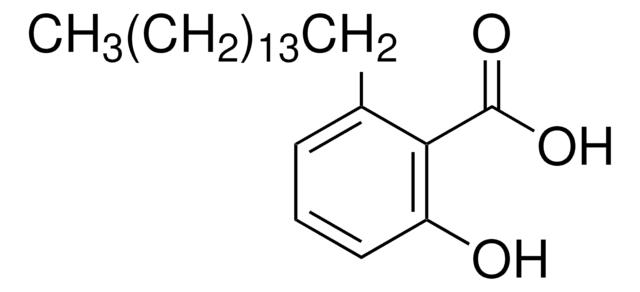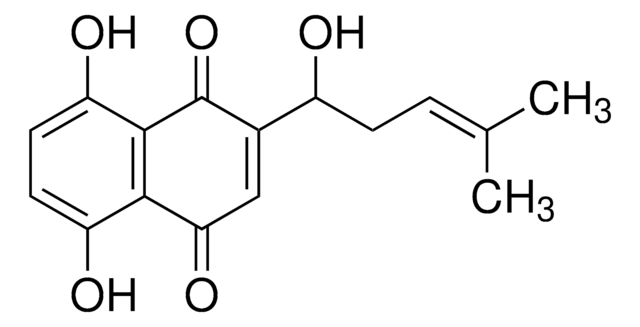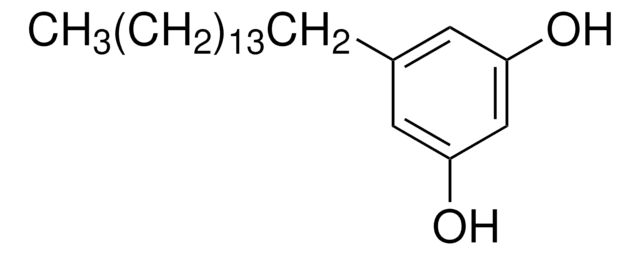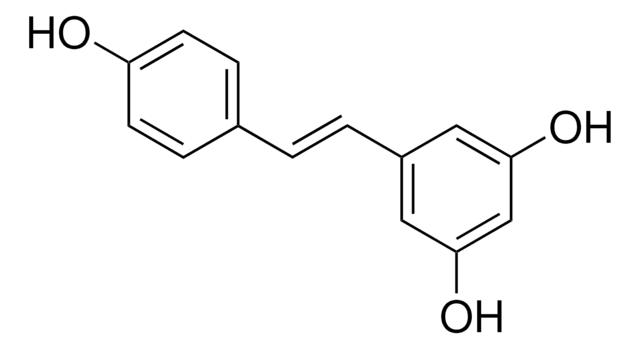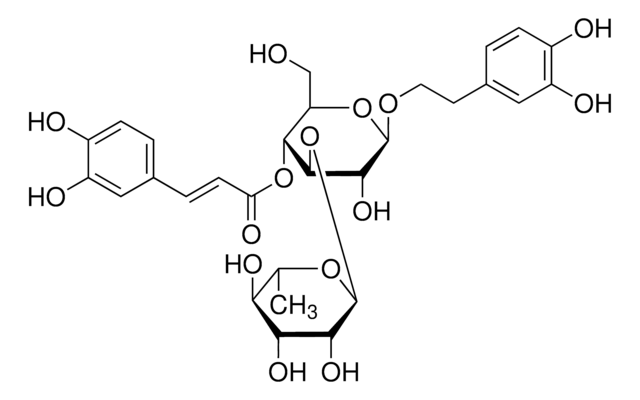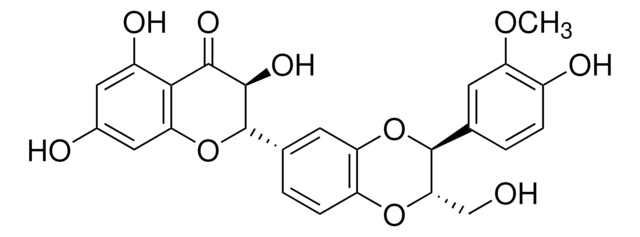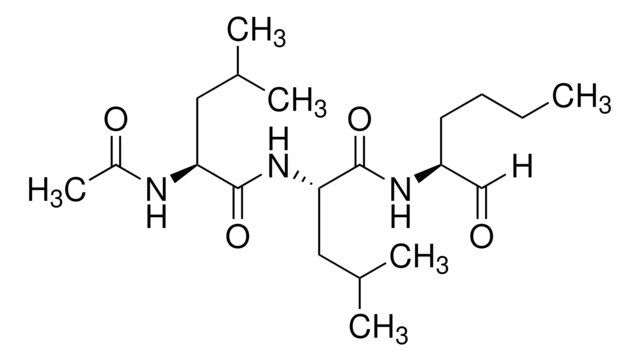172050
Anacardic Acid
The Anacardic Acid, also referenced under CAS 16611-84-0, modulates the biological activity of Anacardic. This small molecule/inhibitor is primarily used for Cell Structure applications.
Sinônimo(s):
Anacardic Acid, AA, 2-Hydroxy-6-pentadecylbenzoic Acid, 6-Pentadecylsalicylic Acid, Aurora Kinase A Activator, Histone Acetyltransferase Inhibitor III, SUMOylation Inhibitor II, HAT Inhibitor III, p300/CBP Inhibitor III, PCAF Inhibitor I
About This Item
Produtos recomendados
Nível de qualidade
Ensaio
≥95% (HPLC)
Formulário
solid
fabricante/nome comercial
Calbiochem®
condição de armazenamento
OK to freeze
protect from light
cor
white
solubilidade
DMSO: 10 mg/mL
ethanol: 10 mg/mL
methanol: 10 mg/mL
Condições de expedição
ambient
temperatura de armazenamento
2-8°C
InChI
1S/C22H36O3/c1-2-3-4-5-6-7-8-9-10-11-12-13-14-16-19-17-15-18-20(23)21(19)22(24)25/h15,17-18,23H,2-14,16H2,1H3,(H,24,25)
chave InChI
ADFWQBGTDJIESE-UHFFFAOYSA-N
Descrição geral
Ações bioquímicas/fisiológicas
HAT
Embalagem
Advertência
Reconstituição
Outras notas
Kishore, A.H. 2008. J. Med. Chem.51, 792.
Balasubramanyam, K., et al. 2003. J. Biol. Chem.278, 19134.
Paramashivappa, R., et al. 2002. J. Agric. Food Chem.50, 7709.
Informações legais
Código de classe de armazenamento
11 - Combustible Solids
Classe de risco de água (WGK)
WGK 3
Certificados de análise (COA)
Busque Certificados de análise (COA) digitando o Número do Lote do produto. Os números de lote e remessa podem ser encontrados no rótulo de um produto após a palavra “Lot” ou “Batch”.
Já possui este produto?
Encontre a documentação dos produtos que você adquiriu recentemente na biblioteca de documentos.
Nossa equipe de cientistas tem experiência em todas as áreas de pesquisa, incluindo Life Sciences, ciência de materiais, síntese química, cromatografia, química analítica e muitas outras.
Entre em contato com a assistência técnica